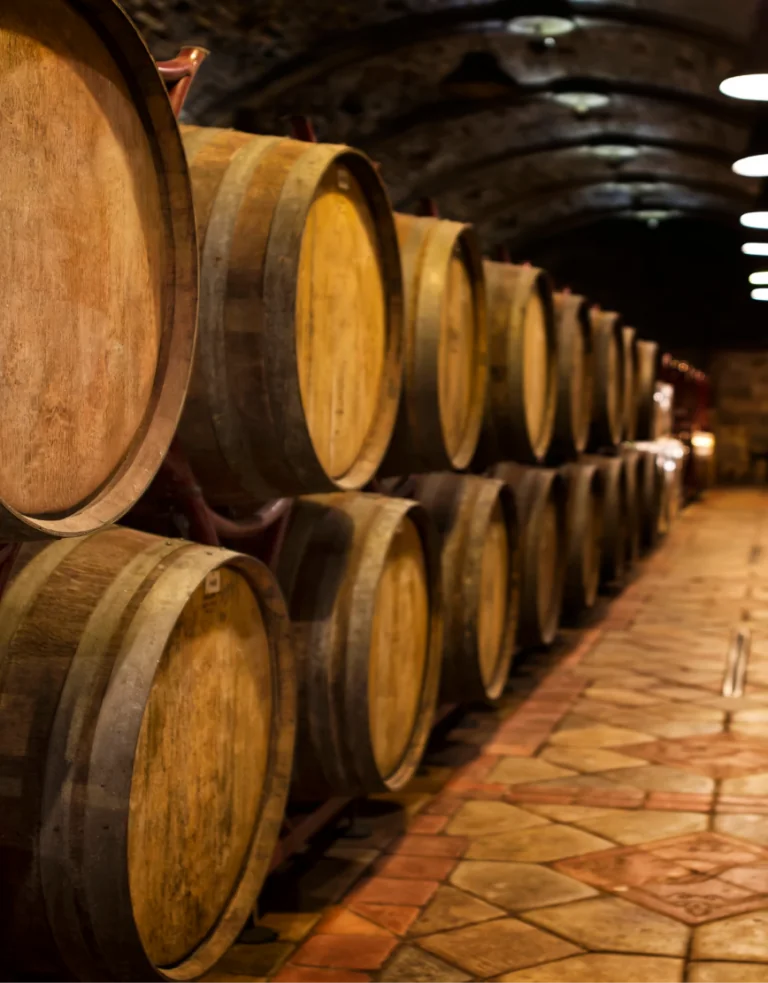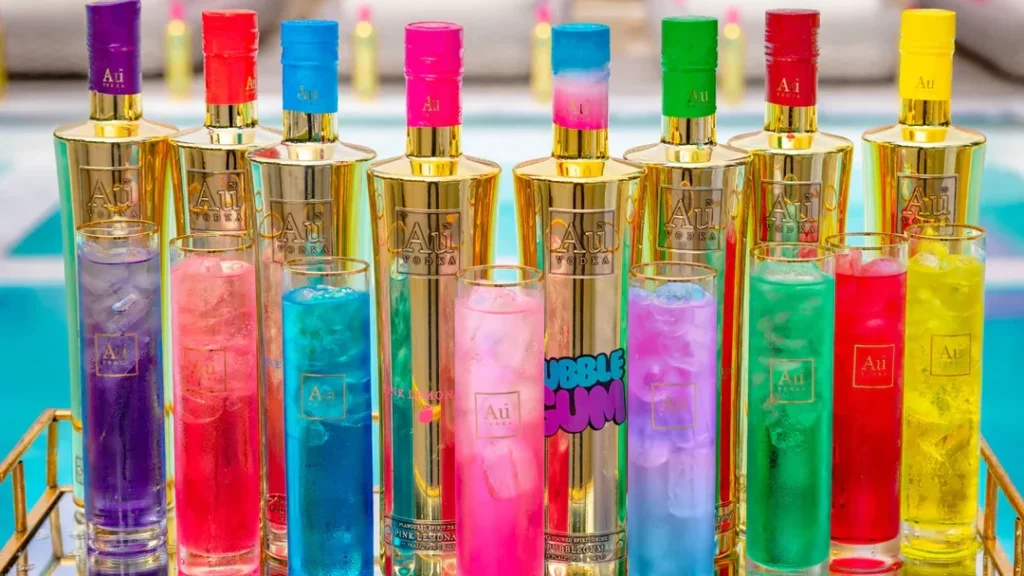In this article, you will find valuable industry data and advice on how to achieve success and thrive by implementing scalable alcohol fulfilment.

Simplicity is key to a fruitful fulfilment journey, even if your brand sells via numerous channels. When a customer places an online order, whether via your website, a marketplace, or a social media platform, it should automatically feed through to your warehouse team. The chosen vessels – whether they contain beer, wine, cocktails or spirits – should then be carefully picked, scanned and dispatched on the same day to ensure prompt delivery and a first-rate customer experience. A reliable system will also update your stock levels so you’ll never sell a product that’s not available while alerting you when stocks are running low

The logistics journey for your offering is likely to be complex and hard to keep track of without the right support, particularly if you’re selling multiple variations of an alcohol-based product that must remain compliant with rigorous government and HMRC regulations. Outsourcing this time-consuming process to a trusted fulfilment partner will enable you to save money and focus on other key aspects of your brand, safe in the knowledge that your customers are privy to a seamless, satisfying service. And don’t simply accept a one size fits all approach to fulfilment. Your fulfilment partner needs to understand your specific requirements and create a bespoke plan that will best serve your business and its plans for growth into new territories and marketplaces and subsequent increasing order volumes going forwards. This is particularly important in selling alcohol, where each new territory may bring a raft of further regulations to consider. For example, at kun Fulfilment our Continuous Improvement Team analyses all client processes to optimise the service we provide, working in tandem with operations, finance, supply chains and future projections departments to identify untapped opportunities and make improvements. This enables the team to fully collaborate with you throughout your Kun Fulfilment partnership to guarantee scalable growth while maximising efficiency.

A frictionless fulfilment process affords brands the time to be more agile as new consumer drinks trends – and subsequent commercial opportunities – emerge. You need to be able to react quickly to meet sudden spikes in customer demand and, while this will inevitably pose challenges to inventory planning, this can be overcome if you’re using software that offers real-time insight into omnichannel sales and warehouse inventory levels. Assessing current sales data alongside historic data makes it easier to spot patterns and ensure that you aren’t left with expired or leftover products once a spike has passed. This is equally important to bear in mind when preparing for peak-season eCommerce events. A fulfilment provider needs to have the tools and account managers in place to meticulously forecast orders so that warehouse teams can flex in size to serve different needs across various marketplaces while making sure there is unlimited scalability to order volumes with zero breakages or customer complaints. This includes detailed knowledge of key annual periods for alcohol, such as the summer months, bank holidays, Christmas and New Year, as well as being able to predict other one-off events that might lead to an increase in sales, such as the Royal Coronation. On the flip side, your fulfilment also needs to be flexible enough to adapt when things don’t go to plan. Whether it’s industrial action, an economic downturn, supply chain issues or a product recall, you need to work with your fulfilment provider to ensure that there are clear contingency measures, with your provider able to act as an extension of your brand and communicate what’s happening to your customers.

Your warehouse should include dedicated, premises-licensed storage areas for alcohol products so that they leave in the same condition they arrived. Not every warehouse will be up to spec. You need to make sure you have clean, temperature-regulated ambient spaces and, of course, that your valuable products are kept out of direct sunlight and, preferably, in a cool, dark place so they don’t lose any of their flavour, colour or potency over time. In addition to this, your fulfilment provider needs to demonstrate that it has batch control, stock checking and quality assurance measures to ensure products don’t exceed best before dates. This is particularly important in the case of perishable products or those that contain organic ingredients. One example of best practice is adopting a first-in-first-out method so that older products are picked, packed and shipped as a priority, minimising the risk of waste and items reaching expiration dates.

Unboxing is the first physical interaction that your customers have with your product. So it’s vital that customers experience products and packaging as per your instructions and, crucially, without any damage or breakages, particularly when it comes to transporting glass bottles. Sustainable, alcohol-specific packaging, protective insulation materials – such as Flexi-Hex – as well as appropriate-sized boxes and fragile stickers are all helpful when it comes to achieving this. Some fulfilment providers can even meet more targeted packaging requests so that alcohol products arrive complete with a sample, branded note or other marketing collateral.

Brands need to consider the optimal locations for getting products out to customers effectively. Geographic proximity means faster, more cost-effective and more environmentally friendly shipping, so try and choose a fulfilment partner that has a proven presence in the locations that matter most to your business – and that can boast easy access to major transport networks, allowing for cohesive and effective distribution further afield.

A good delivery experience encourages customers to order again. But this doesn’t always mean the same or next day. Customers want high levels of service at a reasonable cost and transparency throughout the fulfilment process. In a nutshell, they want to know where the item is, when they can expect it and a guarantee that it will arrive at the time stated when they made the purchase, all from alcohol-compliant couriers who make the effort to ask for age verification.
In addition to this, customers are becoming more eco-conscious, so it’s important that you’re fulfilling orders in a way that’s as sustainable as possible. Alcohol brands can clearly demonstrate their ESG credentials to customers when they have the relevant accreditations in place.
As part of this process, fulfilment providers should have teams dedicated to achieving relevant industry standards. This isn’t merely a box-ticking exercise, it ensures that your products are managed, fulfilled and delivered – from eco-friendly warehouses – with integrity.
D2C-based alcohol selling now sits alongside the online marketplace model as a mainstay for fast-growth alcohol brands. During Covid, people spent far more time online than ever before, becoming familiar with the D2C model as they sought out their favourite titles at a time when on-trade destinations were forced to close their doors and many people were reluctant to shop in physical stores.
The convenience of D2C is massively appealing to alcohol customers, particularly those with consistent consumption habits who know exactly how they like their cabinet stocked. This has led to a rise in subscription-based sales, as well as curated product bundles that bring an element of discovery to the customer experience.
Of course, brands cannot rely on every customer to keep up with their purchasing frequency in these testing economic times. We’ve seen more and more agile alcohol producers packaging up eye-catching incentives to keep customers loyal in recent months, through discounts, bulk buys and other promotions – something that’s far easier to achieve via D2C where brands aren’t forced to pay any commission to third-party marketplaces.
Boost your Alcohol D2C operation through fulfilment.
Low and no alcohol products are no longer just for designated drivers – they’re increasingly favoured by millions of sober-curious drinkers, particularly Gen Zs, who consume 20% less alcohol than their millennial counterparts (2).
We’ve seen numerous launches in no and low alcohol beverages from both established brands and dedicated zero-line businesses and perhaps the most notable shift is the rising consumption of these products within the home, a trend which took off during Covid and has been sustained ever since.
Tapping into no-alcohol occasions, advanced science and technology are also enabling drinks brands to launch alcohol-free products that offer mood-enhancing or functional benefits, for example, drinks containing ingredients such as CBD or health-focused fermented drinks. It’s certainly a compelling alternative to alcohol-fuelled wellbeing, and the rush of new launches in this category recognises that audiences of all ages are looking to take better care of themselves – physically and mentally. Of course, with so many no and low-alcohol products brought to market in the past three years, you need to be laser-focused on where your latest product innovations fit, while giving careful consideration as to the sales channels most likely to reach your intended audience.
An omnichannel fulfilment strategy – in which products are fulfilled from the same warehouse regardless of the sales channel – is a great starting point for gathering vital data on how your products are performing. It allows you to trial different products and sales strategies via different channels with ease, to see which ones achieve cut-through and conversion.
Wine, beer, spirits, no and low alcohol: we can help all alcohol brands to grow through fulfilment.


Consumers are increasingly looking for drinks companies to show a clear commitment to sustainable production and business practices. In fact, almost half (48%) of alcohol drinkers report that a company’s sustainability or environmental initiatives positively influence their purchasing decisions (3).
For example, many buyers want to see products packaged in recyclable materials, and drinks made from natural, sustainable, locally-sourced ingredients and are even willing to wait slightly longer for delivery if it reduces the carbon footprint involved.
All of this makes life more complicated for alcohol brands as they think through the lifecycle of each and every product from production to arrival at their customers’ doors.
Key factors to take into consideration include storing products in zero waste warehouses, taking a plastic-free approach to packing, a paperless approach to picking and offering greener shipping services – for example, by using hybrid and electric vehicles and route optimisation software – to ensure deliveries are as carbon efficient as possible.
It’s important to remember that the sustainability ethos extends to people working in fulfilment too. Many warehouse roles are incredibly physically demanding, repetitive and involve employees walking long distances to locate products, all while being timed and monitored, which can lead to intense stress and strain. This is why brands need to choose fulfilment partners that treat their people well, for example by taking health and safety seriously, operating flexible hours and encouraging regular breaks.
We’re not like other fulfilment companies. Talk to a fulfilment expert to learn more about our human-centric model.
People are switching between beverage options with increased frequency, as well as showing greater willingness to try completely new types of drinks – from hard seltzers to craft beers and canned cocktails (4). In fact, almost one-third (30%) of alcohol brands said they plan to launch exploratory products in the next two years to capitalise on the growing appetite for experimentation and unconventional new taste sensations (5).
With loyalty no longer such a safe bet, brands need to step up their innovation credentials to retain their place in such a jostling and vibrant category. Logistically, however, this means many more SKUs to manage and keep track of, more potential for confusion and delays to creep into the picking and packing process, and of course, the possibility of frustrating customers if problems occur once the order has been placed.
Capable warehouse management systems are essential if these issues are to be avoided. It’s not about haphazardly piling products up to the rafters in vast warehouses, but more about using smaller, self-contained hubs to easily store and manage multiple SKUs, all belonging to one brand, all in one accessible space.
With a premium product range at its fingertips and a winning fulfilment partner on board, Au Vodka’s business has gone from strength to strength over the past few years, achieving a hugely successful launch into Europe and now planning for its hotly anticipated venture into the US. “We’ve become the fastest-growing alcohol brand in eCommerce, and Kun Fulfilment has played an important part in this growth story”.

Service quality is our number one priority and we recognised the advantages of using third-party fulfilment to ensure accurate and speedy picking, packing and shipping at all times. We spoke with Kun Fulfilment for months before signing up. What we saw during this time was an amazing level of commitment shown by Kun Fulfilment towards its clients’ customers, which gave us the confidence that Kun Fulfilment was the right fit for Au Vodka.
Jordan Major

We transform multi-million-pound turnover alcohol brands into digital commerce market leaders by deploying customised solutions that are forward-thinking and future-fit. This means that they can adapt to the speed and scale that large businesses demand, in turn driving efficiency and growth, while staying loyal to each brand’s ethos, values and heritage. We build and manage our own technology because it’s more reliable that way and allows us to remain in total control of your products at all times. Our technology also speeds up ongoing operational processes and brings greater clarity to the status of every order.
This includes developing and creating tailored integrations that drive efficiency and growth, such as automation and targeted reporting. As soon as you sign up, we assign you a Hub Manager whose goal is to look after your brand. They do this by ensuring the smooth running of your dedicated hub while providing exceptional customer service and dealing with any unforeseen or unexpected issues as and when they might arise.
Searching for a bespoke 3PL solution for your alcohol business?


